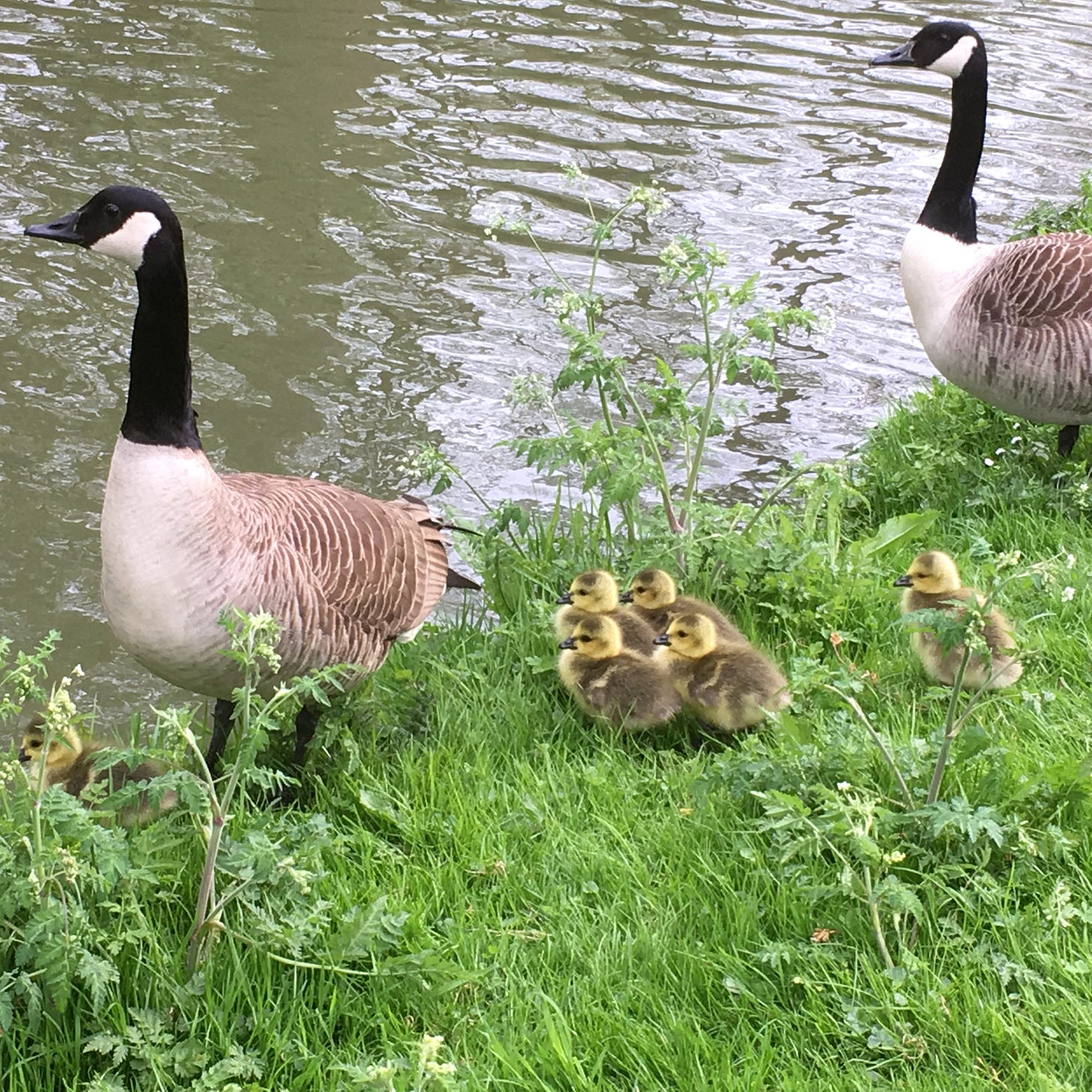The Amazing Power of Distraction
When I was starting out on my writing career, an agent gave me a piece of bad advice – he said, ‘Treat writing like a job. Start at nine, work through till five and don’t get distracted.'
Well, maybe that wouldn’t be bad advice for every author, but it turned out to be very bad advice for me, because it linked time in my mind with productivity, and that made me feel anxious. A whole day with nothing to show for it felt like a waste – and I seemed to have rather a lot of them.
What I had to discover for myself was the amazing power of distraction!
Like many other authors, I find that going for a walk is a top distraction which almost invariably leads to little breakthroughs. I can leave the house with my brain in knots over a plot problem and stride along for a while, head down, unable to let it go, when suddenly something attracts my attention – a fox on the footpath, a person on a park bench sketching or, like today, a clutch of goslings.
Then my mind lifts away from plot-worrying completely, and stays that way for the rest of my walk. By the time I get home, a solution has magically appeared, in the same way as when you sleep on a problem and wake with the answer.
Switching between writing projects is another fruitful distraction for me. I’ve usually got at least three books at the planning stage, as well as new workshops and articles and personal scribblings. Setting my main work-in-progress aside and working on something different means I forget about it for a while and then come back to it with new clarity and energy.
Reading an article, having a nap, doing a spot of weeding… All the things you generally can’t do in a nine to five job can make you more efficient in creative work. Some workplaces recognise this and have chill-out spaces and games rooms for workers to take unscheduled naps and play.
The key is to keep firmly in your mind that these are distractions – that is to say, short breaks from the main endeavour – or you could find yourself snoozing all afternoon or binge watching whole box sets, rather than taking forty winks or watching an episode of your favourite sitcom.
Keep looking away, but keep coming back.
Of course, everybody’s different, and so is every writer. Does nine to five work well for you, or do you like to harness the power of distraction in your writing process too?






Submitting willingly to the Power of Distraction so I can be surprised by Life and open to its gifts and possibilities …